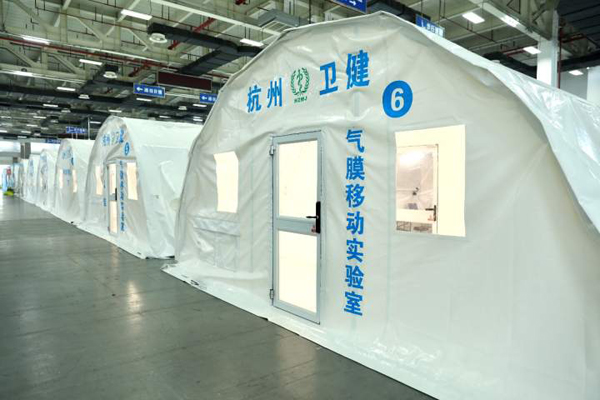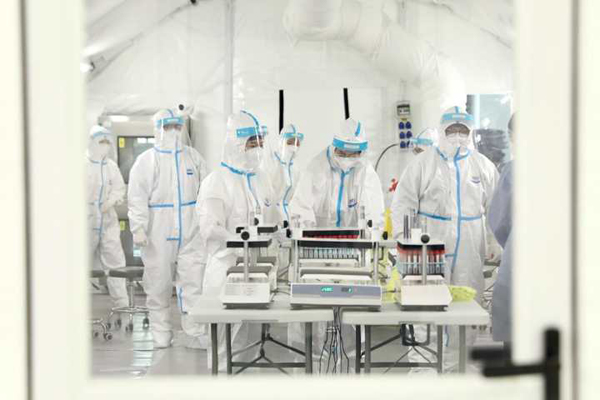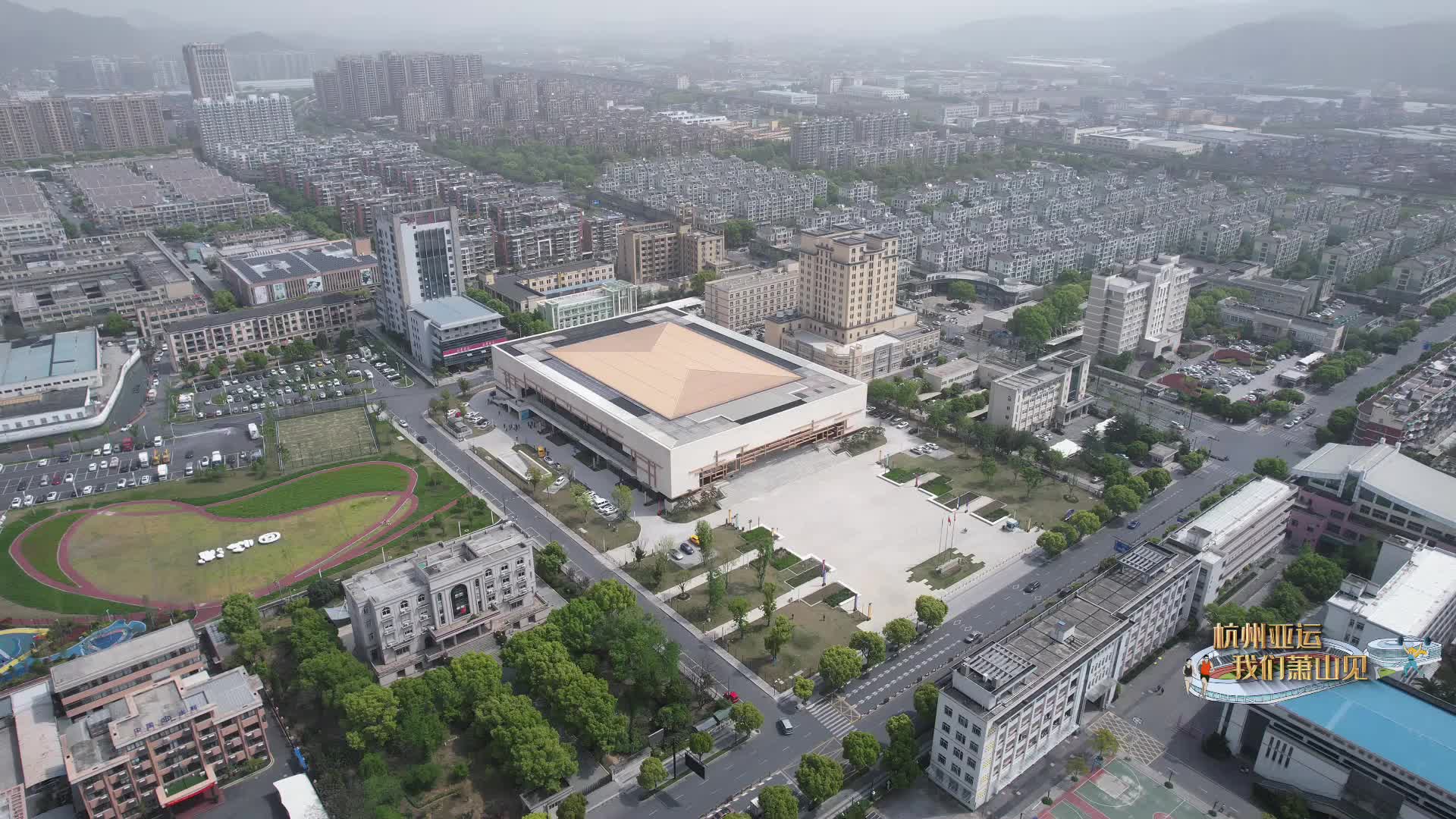Hangzhou brings in new makeshift nucleic acid test labs

Six new makeshift laboratories for nucleic acid tests are put into use in Hangzhou. [Photo/zjol.com.cn]
Six new makeshift laboratories for nucleic acid tests were recently put into use at the Whitehorse Lake International Exhibition Center in Hangzhou, capital of East China's Zhejiang province.
Unlike former labs owned by third-party detection institutions, the new labs are independently owned by the Hangzhou health commission with staff members coming from city and district-level hospitals.
Wu Yidong, a doctor at the Children's Hospital affiliated with Zhejiang University School of Medicine, said that the labs were set up within 24 hours, with testing capacity reaching 100,000 tubes for 1 million people per day.
Wu said that after delivery, the samples would first have their information checked, which includes registering and coding, and then be sent to the preparation area for nucleic acid extraction and the amplification area for virus increase, and finally be tested by machines.
It takes only two to three hours for the results to come out. The labs mainly handle samples sent from quarantined areas in Shangcheng, Yuhang and Qiantang districts.
As Hangzhou is currently experiencing a new surge of COVID-19 cases related to a local parcel distribution center, the local government is beefing up efforts to control the spread of the virus.
As of March 15, a total of 2,758 temporary and permanent nucleic acid test sites have been set up in the city, testing over 3.02 million people.

Medical workers work at the makeshift labs in Hangzhou. [Photo/zjol.com.cn]
-
Foreign teacher, Hangzhou students capture picturesque countryside
August 9, 2023
-
Hangzhou Asian Games launch 50-day-to-go campaign
August 4, 2023
-
Hangzhou achieves 6.9% GDP growth in H1 2023
July 27, 2023



